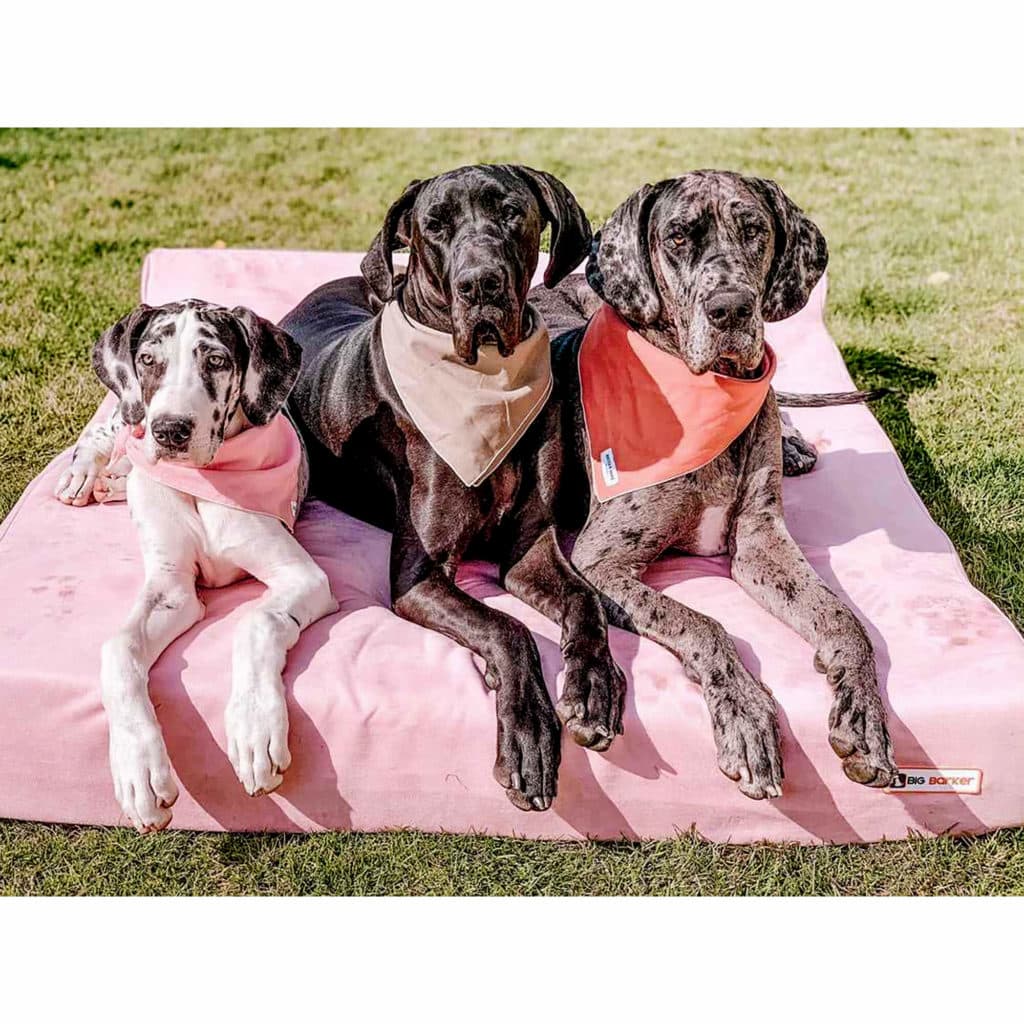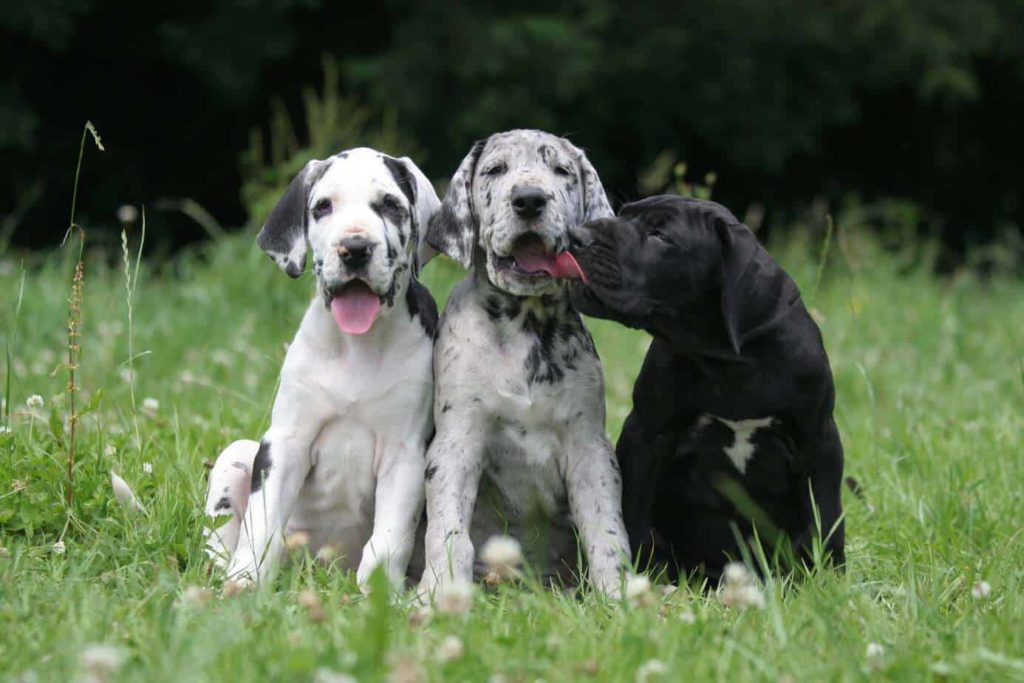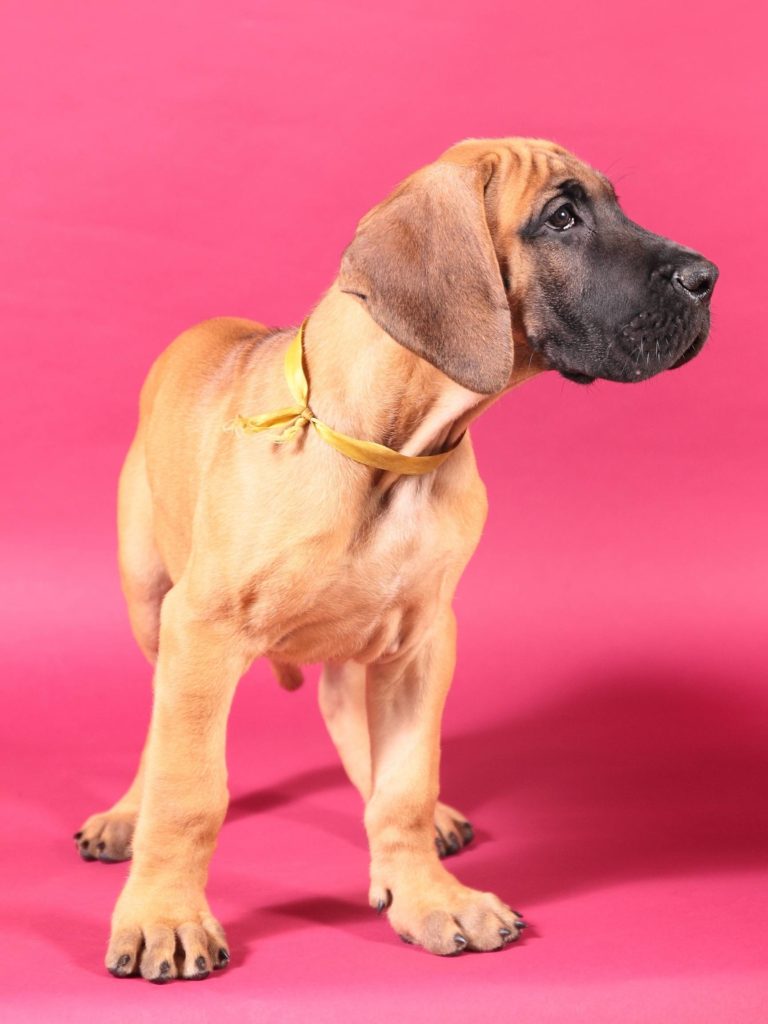There is a lot of misinformation out there about Great Danes and chicken. Some people seem to think that Great Danes are susceptible to chicken intolerances. So what is the truth? Are Great Danes allergic to chicken?
Let’s put this to rest, once and for all. We’re covering the Great Dane dog food allergy debate today with a heavy dose of controversial information, paired with some real veterinary science!
In this blog post, we will take a look at the truth about dog food allergies, and we will also provide some information about what foods are safe and healthy for Great Danes to eat!
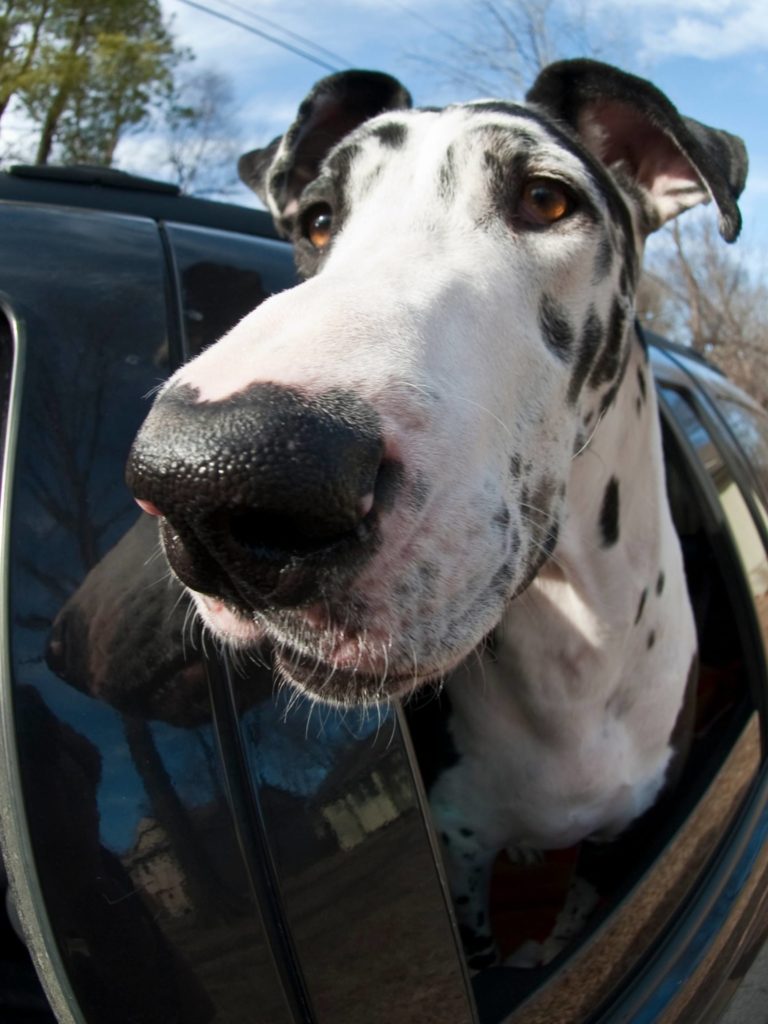
Are Great Danes Allergic to Chicken
The quick answer is no.
Despite what you may have heard, Great Danes are not often allergic or intolerant to chicken. A real poultry allergy is actually incredibly rare!
In fact, chicken is a common and well-researched ingredient in many dog food formulas, and it is generally considered to be a safe and healthy option for most dogs.
Among the list of common food allergens, chicken is not actually a prime suspect.
Many pet parents have diagnosed their dog at home with chicken allergies based on anecdotal evidence, speculation, and information they heard from other dog owners.
They believe their Great Dane has a food allergy based on this alone!
Many will then change their dog’s diet without recognizing that there are many other factors at play.
Social media groups have perpetuated the myth that Great Danes are sensitive to chicken!

Why do so many dogs have chicken allergies?
It’s not that so many dogs are intolerant or allergic to chicken, it’s that so many dogs have been subjected to assumptions and misunderstandings about allergies.
Anytime a dog is itching or has a loose stool, people immediately jump to the food. Because most dog foods contain chicken in some form, it takes the blame.
Managing a dog’s food allergies can appear particularly daunting to people who believe, based on poor health, social media, marketing, and questionable allergy tests (more on this below), that their Great Dane is allergic to chicken, beef, oats, rice, and barley, lentils, corn, or otherwise!
Here are some common reasons why a dog may appear to have a chicken allergy:
- The dog has not often been exposed to chicken before and is suddenly introduced to a new food that happens to contain it. This sudden change in diet can cause an upset stomach or diarrhea, which is often mistaken for an allergic reaction to chicken.
- The dog is being fed poorly balanced food and is suffering from nutritional imbalances that cause dry coats, itching, and chronic loose stools.
- The owner is adding a lot of toppers and/or switching foods often, trying to “find something that works” and resolve allergy symptoms, destroying gut health in the process
- The dog is being fed the wrong food for its life stage or size and is not getting the right nutrition they need to thrive. (It’s 2022, learn about why Great Dane puppies need puppy food!)
- The dog is suffering from environmental allergens that cause itchy skin, ear infections, goopy eyes, and other skin issues.
Medical causes for chronic loose stools or skin problems can also include:
- Parasites
- Mites
- Mange
- Cushing’s
- Addison’s
- Poor gut health
None of these have anything to do with chicken and yet, time and time again, chicken in dog food is what takes the blame!
To summarize, most dogs with ‘chicken allergies’ are actually suffering from nutritional imbalances, poor gut health, medical problems, or environmental allergies.
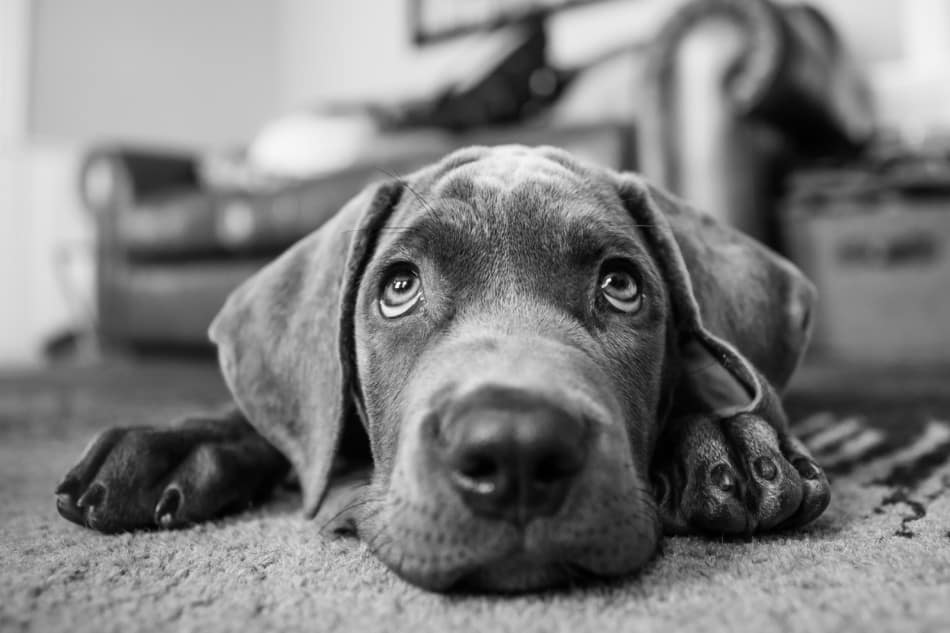
How are chicken allergies diagnosed in dogs?
The only way to definitively diagnose a chicken food allergy is through food trials using an elimination diet and allergy testing, both of which should be done under the care of a veterinarian.
A food trial involves switching your dog to a new diet that does not contain any chicken or other common allergens for at least 12 weeks. This means avoiding all treats, toppers, and counter surfing which may skew the results of the testing.
Participating in a food trial requires dedication and attention to detail.
Hydrolyzed protein diets are often used for food trials because they contain proteins that have been broken down into such small pieces that they are unlikely to cause an allergic reaction.
If the dog’s symptoms improve on the new diet, then it is likely that they were caused by a food allergy. It could have been chicken OR another ingredient in their old food, and additional tests are warranted.
Food trial elimination diets are a lot of work, but they are the gold standard for diagnosing food allergies!
All about blood & saliva allergy tests
Allergy testing involves a blood test or taking a saliva sample from your dog and sending it to a laboratory that will test for antibodies to common allergens, including chicken.
These allergy tests can often be done at home or through your veterinarian.
However, most blood and saliva allergy tests are a waste of money as they are wildly inaccurate in dogs! So much so that some dogs will receive different test results from the same sample.
Read more about the poor accuracy of blood and saliva allergy testing in dogs HERE –>
A more accurate and scientific option looks for reactions to common allergens by introducing them to the sub-dermal layer of your dog’s skin.
This is helpful when ruling out environmental allergies, which are MUCH more common than food allergies.
This is called an intradermal allergy test and, while it is more accurate than blood or saliva tests, it still isn’t perfect.
These tests can be painful for your dog and may be expensive, so they are not usually recommended as the first line of testing.
The best way to diagnose a chicken allergy is through a comprehensive plan that includes food trials and allergy testing, all of which should be done under the care of a veterinarian.
Not by diagnosing your dog at home.
If your dog has allergy symptoms or symptoms that make you suspicious of food intolerance, it’s important to work with your veterinarian.
Try to recognize that there may be much more to the story than a simple intolerance of chicken.
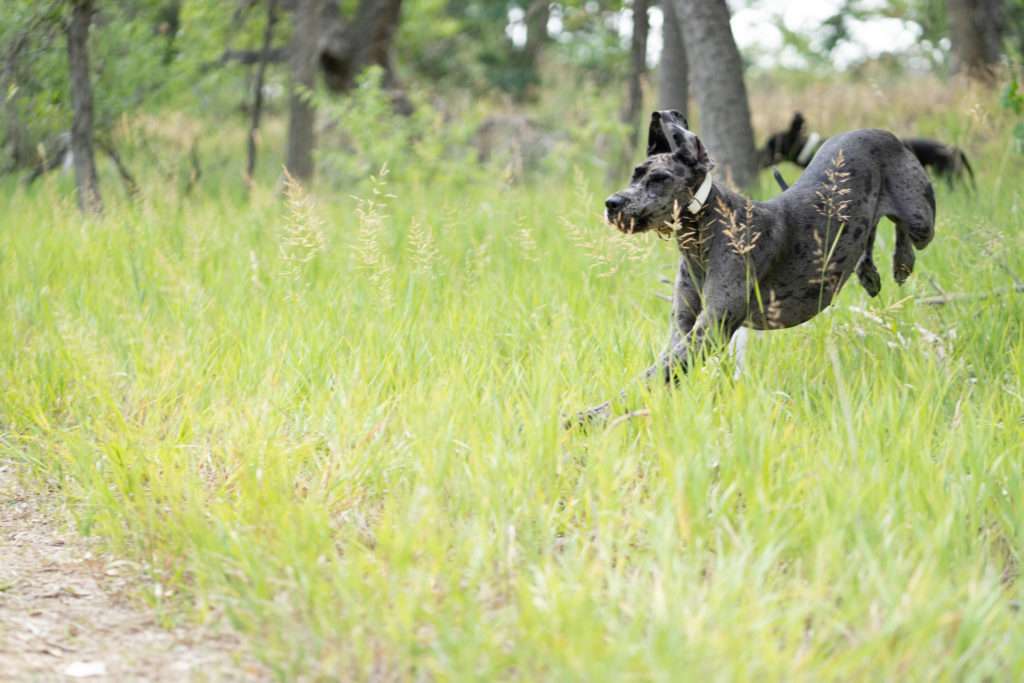
The Truth about Chicken in Dog Food
Chicken is one of the most common ingredients in dog food, and for good reason!
It’s an excellent source of protein that is easily digestible for most dogs, especially when presented as chicken meal or chicken by-product meal.
In fact, chicken is often used as the main protein source in many hypoallergenic diets because it is so unlikely to cause an allergic reaction.
Have you ever seen people give their sick dogs chicken and rice? There is a reason for this practice (even though it’s now considered dated advice). Chicken is a gentle, quality form of protein.
The fact that so many people believe that chicken allergies are common is a direct result of social media, speculation, and anecdotal evidence.
When one person claims that their dog’s chronic loose stools or itching firmed up by switching to a food that didn’t contain chicken, people eat it up.
However, nine times out of ten the dog had been switched to a more appropriate diet, or one that had a better fiber content or didn’t contain something else the dog was actually intolerant of, and chicken had literally nothing to do with it.
A veterinary-prescribed elimination diet is the only way to definitively find food allergies.
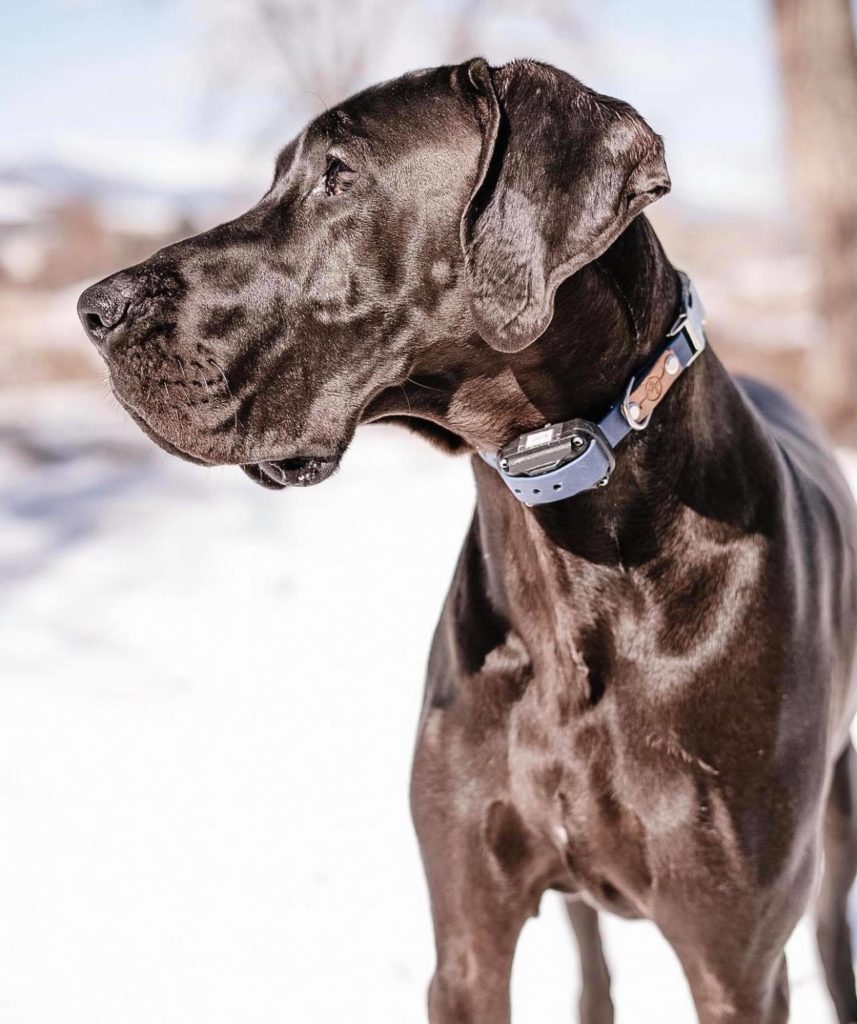
7 Health Battles that Great Danes Fight
What is a hydrolyzed protein chicken diet?
A hydrolyzed protein diet is a hypoallergenic diet that uses proteins that have been broken down into small pieces.
It’s a great option for dogs who do appear to have legitimate sensitivities and is often used during food trials to rule out certain allergens.
Hydrolyzed protein diets are typically only available through your veterinarian, as they require a prescription.
These diets are spendy and not as palatable; you do not WANT your dog to have a protein allergy. It’s expensive and truly not fun for anybody.
To put this quite frankly, stop looking for reasons to diagnose your dog with chicken allergies; chances are, they don’t actually have one!

Does chicken fat cause allergies?
No, chicken fat does not cause allergies. In fact, fat is a great source of energy and essential nutrients for dogs.
Allergies, if they do exist, are caused by the proteins in chicken, not the fat.
Some dogs with legitimate, proven chicken allergies can actually still have food that contains chicken fat!
Chicken fat and meat are two different things.
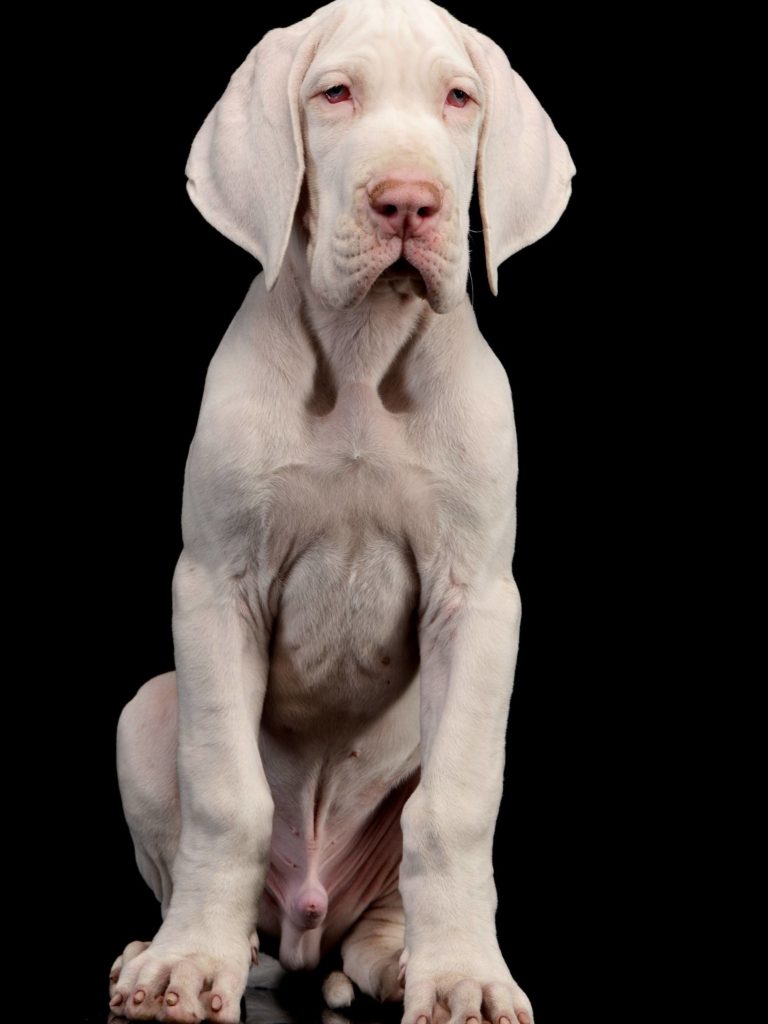
5 Common mistakes you may be making when Training Your Great Dane
Environmental Allergies vs. Food Allergies
Many dogs that have been diagnosed at home with a chicken allergy are actually allergic to things in the environment!
Their immune system may be struggling as a result of too much food switching or because of genetics and environmental factors.
Switching foods often as a means to ‘diagnose the problem’ and resolve allergy symptoms can actually cause things to be worse.
Some of the most common causes of adverse reactions such as itchy skin and goopy eyes are, you guessed it, good old pollen, grass, weeds, and dander in your home.
When this happens, food intolerance is often blamed! The truth is that these dogs need support to help their gut and digestive system heal.
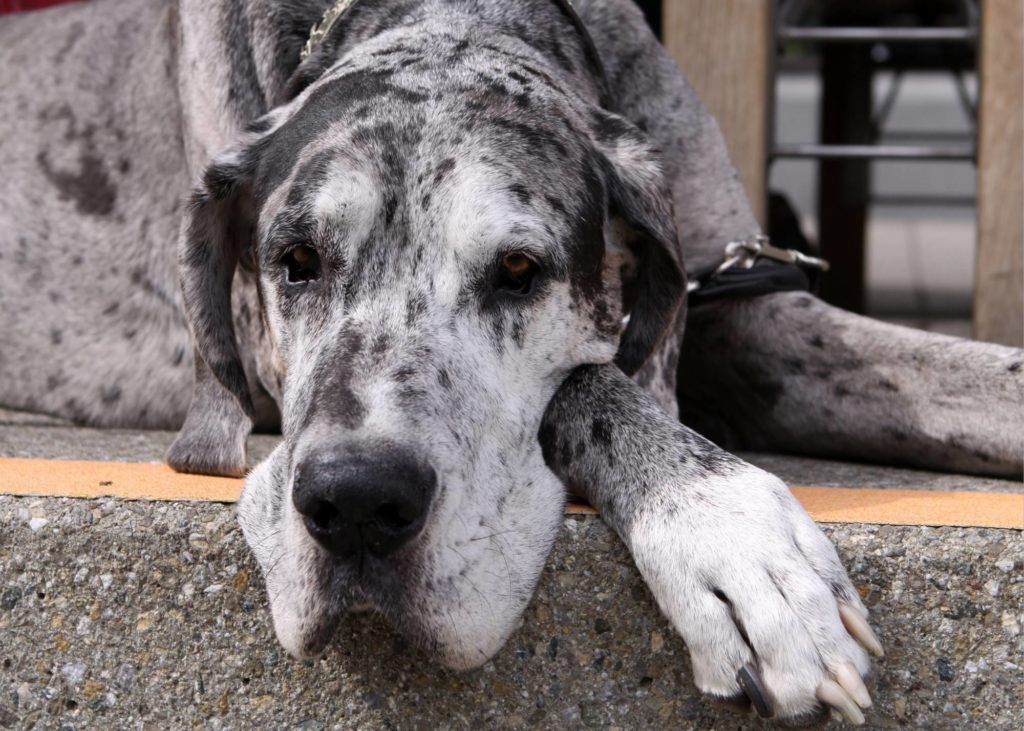
Symptoms of allergies in dogs
If you are concerned about your dog’s overall health and believe they may be suffering from environmental or food allergies, here is a list of common symptoms:
- Severe allergic reactions including difficulty breathing, hives, and swelling
- Skin rashes and redness
- Digestive issues including loose stools and diarrhea
- Goopy eyes
- Chewing on paws
- Ear infections
- Secondary skin infections such as hotspots that often result from chewing, licking, rubbing, and redness
- Pink skin
- Swollen paws
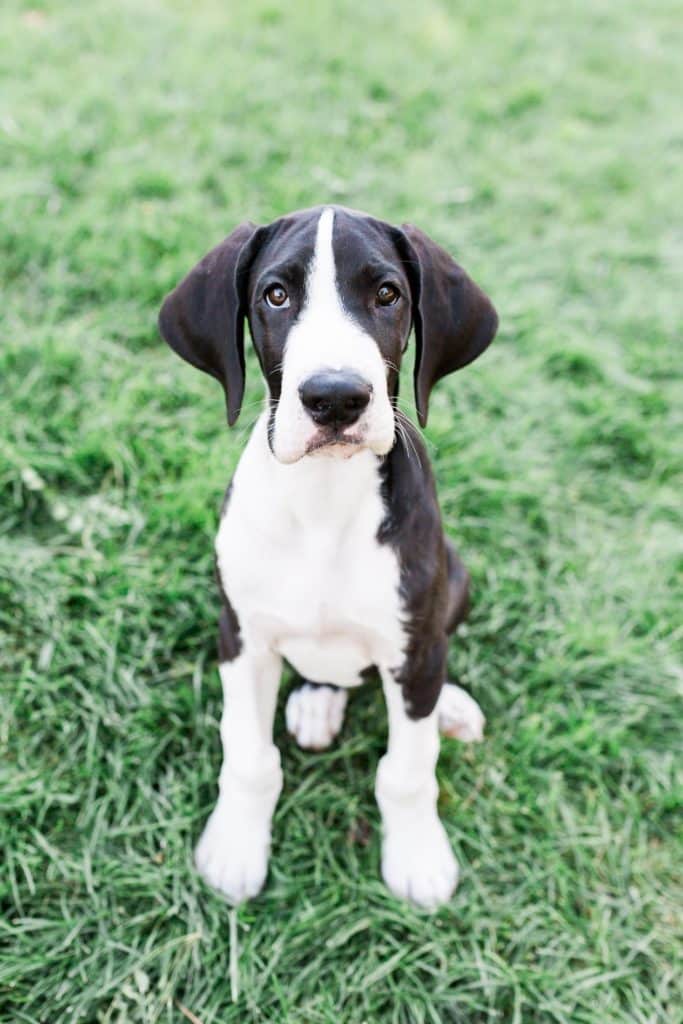
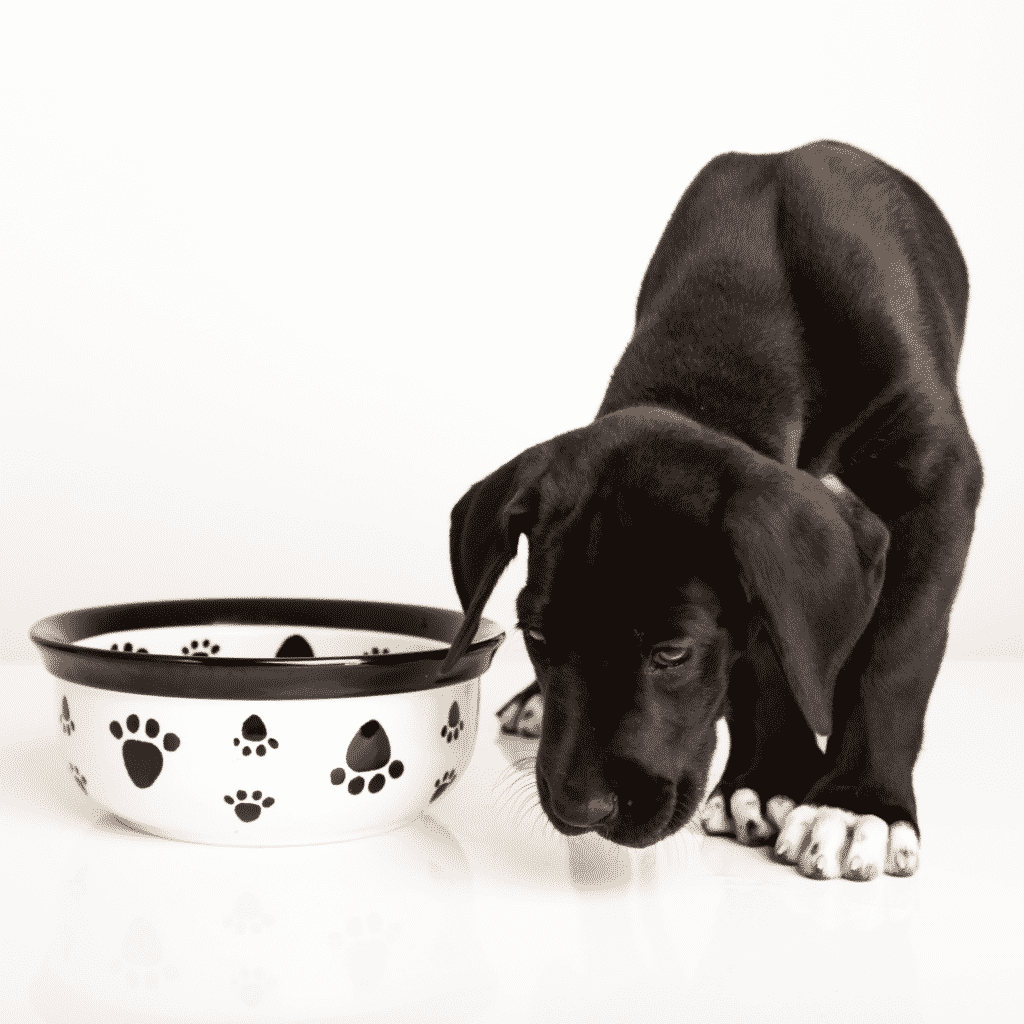
WHAT IS INGREDIENT SPLITTING IN DOG FOOD?
Learn about this dubious marketing practice that may be harming your dog! ↗
How to treat environmental allergies
For Great Dane dogs suffering from environmental allergies, we recommend:
- Probiotics, such as Fortiflora
- Fish oil
- Vetrycin Eye Wash
- Benedryl, with veterinary guidance
- Quality veterinary-recommended food (with or without chicken) and stick with it for a minimum of 12 weeks
- Keep toppers and treats to less than 5% of the overall diet, especially if they are not balanced
- Brushing your dog daily (we recommend SleekEZ for Great Danes), down to the skin to remove dander and dirt
- Frequent indoor vacuuming, including washing the dog bed cover and de-shedding your couch
- Turning off essential oil and scented diffusers, scent warmers, and plug-ins
- Reducing the use of irritating cleansers such as bleach, scented laundry detergents, or carpet sprinkles which can irritate skin, eyes, and paws
- Rinsing the dog off daily using a damp towel to wipe dander and allergens from the face, paws, and body
- Occasional baths using a gentle itch-relief shampoo. Don’t bathe your dog too much, as it can dry the skin out and make it more susceptible to irritation
- Seeing the vet to rule out mites, fleas, mange, parasites, and other common skin irritants
- Apoquel and prescription foods for dogs with serious, verified allergies
Are Grain-Free Dog Foods Better for Allergies
Many people whose dogs are sensitive and suffering from itching and chronic loose stools will turn to grain-free diets.
This is one of the worst choices that can be made.
How grain-free dog foods are made
All kibble dog foods require starch of some kind to bind the meat and other ingredients together. This is why you often see things such as brewers’ rice, brown rice, or oatmeal in dog food.
Grain-free dog foods replace those ingredients with other starchy foods such as potatoes, peas, or lentils. These items sound healthy to the consumer, and also contain protein.
As a result, they become an easy way for dog food companies to reduce their reliance on real meat to meet AAFCO nutrition minimums.
Many grain-free kibbles are nothing more than meat-flavored legumes. This is true even if you see “meat as the 1st ingredient”, because most ‘fresh’ or ‘deboned meats’ are 70% water.
Fresh meat will weigh a lot at first, but once it is turned into kibble there isn’t much left.
Dogs need meat, bone, organ, and cartilage in their diet, which they cannot get from a grain-free diet that is formulated with fresh muscle meat and peas or lentils.
As a result of nutritional imbalance, many dogs are needlessly suffering from an enlarged heart, digestive upset, low energy, and other health problems.
Are you noticing a trend here, yet? These health problems are often blamed on ‘chicken’.
Certain amino acids, proteins, and nutrients will be missing in poorly formulated diets.
This is why we recommend feeding a grain-inclusive food with meat meals and meat by-product meals making up the bulk of the finished kibble.
Read on…
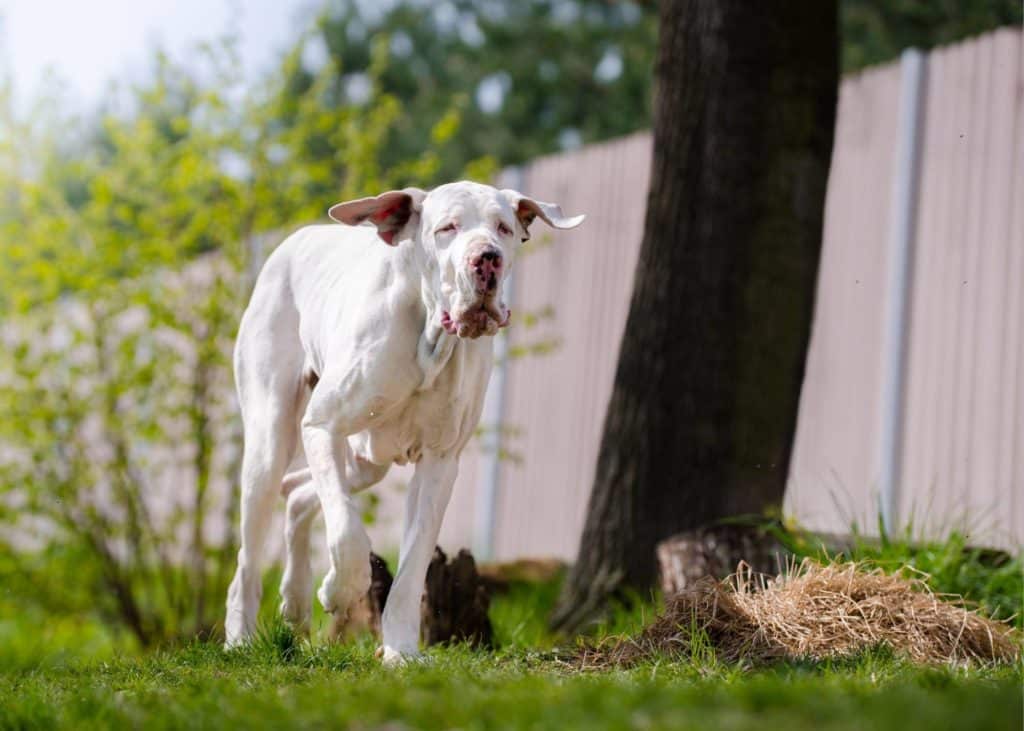
Grain-free diets and DCM
Grain-free and other poorly-formulated food brands have been implicated, on repeat, for causing DCM (enlarged heart) and sudden death in otherwise healthy dogs.
Many of these dogs’ conditions are reversed through a diet change.
The FDA has released multiple warnings about the connection between certain diets and DCM.
They have not, however, been able to pinpoint a specific ingredient, brand, or formulation that is causing this condition. Doing so will take years of research.
The DCM – Food link is thought to be a combination of factors such as high legume content and poorly formulated foods from companies with no board-certified veterinary nutritionist on staff.
Nutritional DCM has been seen in dogs being fed both grain-free and grain-inclusive diets, so it stands to reason that this is a formulation problem more than anything else.
Dogs need organ meats, bone, fat, and cartilage tissue in their diet.
Despite this, a lot of expensive “natural” food companies will choose fresh meat (such as ‘roasted lamb’ or ‘deboned chicken’) for their product because it makes the label seem more appealing to dog owners who are spending their money.
Nutritional DCM is essentially the result of serious marketing problems in dog food.
If a food company is trying to appeal to your human taste, instead of what your Great Dane actually needs, you need to ask more questions.
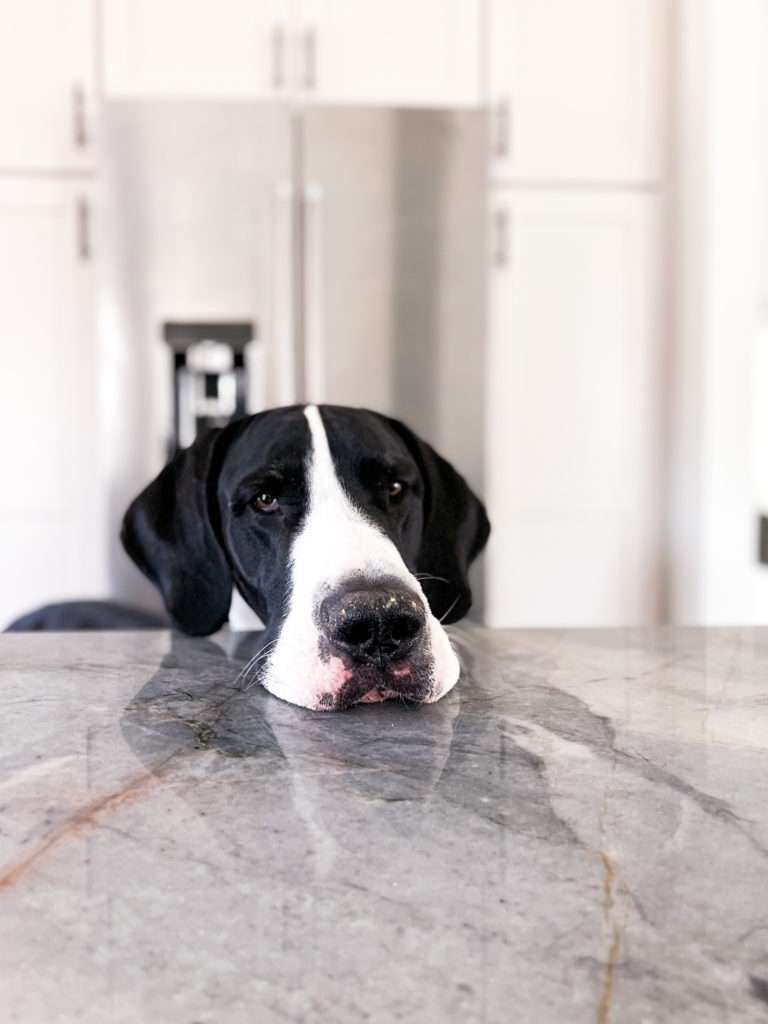
IS GRAIN-FREE FOOD DANGEROUS?
What are the best foods for Great Danes?
The best food for a Great Dane is going to be a large or giant breed formula that is well-researched, backed by peer-reviewed science, and formulated by a board-certified veterinary nutritionist.
Great Danes have different nutritional requirements than smaller breeds. The exact balance of amino acids, proteins, fats, and nutrients is key.
Rendered meat meals (such as beef meal or chicken by-product meal) were shown to reduce the risk of bloat!
This nutrient-dense rendered meat ingredient is biologically appropriate and exactly what you want to see in a Great Dane’s diet. Meal meal of some kind should be in the first ingredients.
We also like to see balanced calcium and phosphorus ratios.
What is the best kibble with no chicken?
If you do have a Great Dane that is suffering from allergies, the best kibble with no chicken is going to be Pro Plan Large Breed Sensitive Skin & Stomach Salmon Flavor.
When choosing food for Great Dane puppies under 24 months, choose from our puppy list.
- Purina Pro Plan Large Breed Puppy – any flavor!
- Purina Pro Plan Sensitive Skin & Stomach Large Breed puppy – TOP PICK, salmon-based
- Eukanuba Large Breed Puppy (Great for active and sporting dogs)
- Purina One Large Breed Puppy (Excellent budget option)
- Hill’s Science Diet Puppy Large Breed
- Royal Canin Giant Puppy Dry Dog food (to age 12 months) – TOP PICK, PREMIUM OPTION
- Royal Canin Giant Junior Dry Dog food (8-24 months)
- Purina Large Breed Puppy Chow
Check out THE GIANT DOG FOOD PROJECT to compare brands and values.
For Great Danes 18-24 months and up:
- Purina Pro Plan Sensitive Skin and Stomach Large Breed (Salmon based, chicken free)
- Purina Pro Plan Large Breed Shredded Chicken & Rice (Large Pieces & Chicken Shreds!)
- Purina Pro Plan Large Breed Weight Management (Get the weight off)
- Purina Pro Plan Large Breed Bright Mind Age 7+ (for Senior Great Danes)
- Purina Pro Plan Giant Breed (Hard to find, might be discontinued)
- Royal Canin Giant Breed (Amazing for dogs with chronic loose stools, TOP TIER)
- Eukanuba Large Breed (Great for active and sport dogs)
- Purina One Smart Blend Large Breed (Fantastic budget-friendly option)
- Hill’s Science Diet Large Breed Beef & Rice
- Purina Pro Plan 30/20 Sport Beef & Bison

